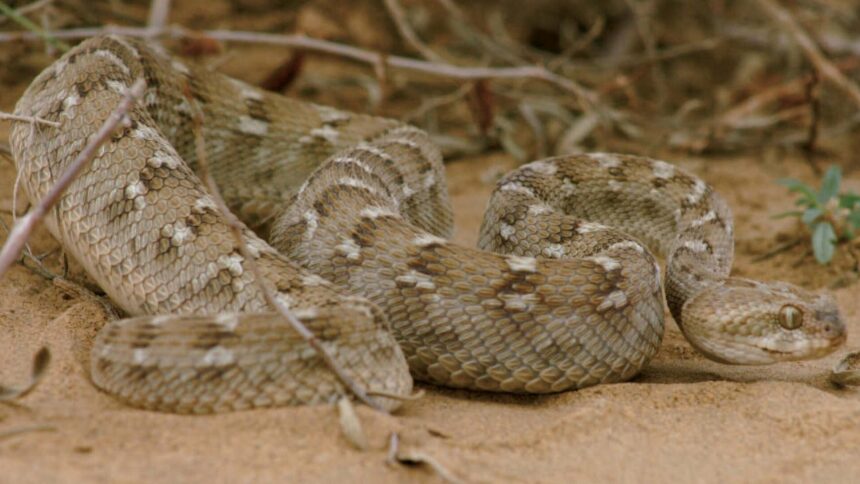The Tharparkar district in Sindh, Pakistan, is grappling with a significant spike in snakebite cases, with nearly 200 people bitten in July 2025 alone, following heavy monsoon rains, according to the Sindh Health Department. The victims primarily come from rural areas and were rushed to government hospitals in Mithi, Chhachro, Islamkot, Nangarparkar, and Diplo for urgent treatment. Health officials have reported one fatality, highlighting the severity of the situation in this desert region. The surge is attributed to the rainy season, which coincides with the peak breeding period for snakes, driving venomous species out of their burrows and into human settlements.
Doctors at Mithi’s Civil Hospital and other facilities have administered anti-snake venom (ASV) injections to neutralize the venom, with each patient requiring between 7 to 10 doses, depending on the severity of the bite. Reports indicate that hospitals like Civil Hospital in Mithi are well-stocked with ASV, but the high volume of cases has strained resources.
The Thar Desert’s forests are home to over 10 snake species, including highly dangerous neurotoxic varieties like the common krait and Indian cobra, and myotoxic species such as Russell’s viper, which can cause paralysis, muscle damage, and severe tissue destruction. The Sindh Health Department has emphasized that timely administration of ASV is critical, as delays can lead to fatal outcomes, particularly with neurotoxic bites that impair breathing.
Health officials have issued urgent advisories, urging residents to wear protective footwear, avoid walking in flooded areas at night, and seek immediate medical attention at the nearest hospital in case of a bite. The Sindh Health Department has also called for community awareness campaigns to educate locals on snakebite prevention and the dangers of relying on unproven remedies like herbal treatments or “snakestones.” However, challenges persist, including limited access to healthcare in remote areas and inadequate training for rural health workers in managing snakebite cases.


Leave a Reply